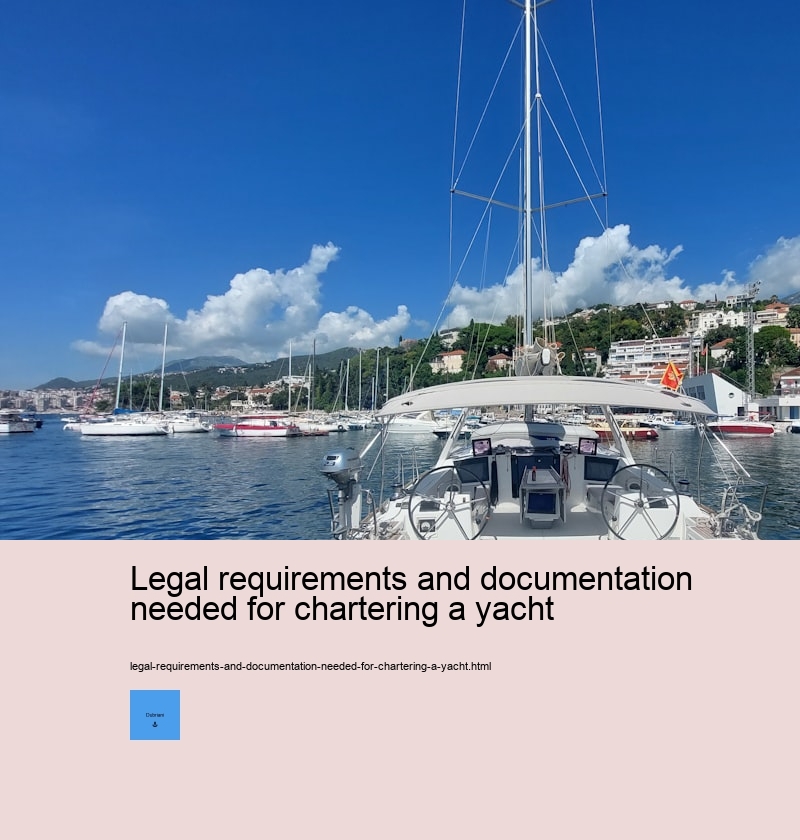Legal requirements and documentation needed for chartering a yacht
Chartering a yacht can be an exhilarating experience, offering the freedom to explore vast expanses of water and visit distant shores. However, behind the allure of open seas lies a complex web of legal requirements and documentation that must be meticulously navigated to ensure a seamless adventure. Understanding these prerequisites is crucial for both yacht owners and charterers, as they safeguard against potential legal complications and enhance the overall chartering experience.
At the heart of yacht chartering are the contractual agreements that outline the terms and conditions of the rental. These contracts are not mere formalities; they are binding agreements that protect all parties involved. Typically, these documents enumerate responsibilities concerning vessel operation, payment schedules, liability issues, insurance coverage, and safety measures. It is imperative that both parties thoroughly review these contracts before signing to ensure clarity on all fronts.
One critical aspect of chartering a yacht is compliance with maritime regulations specific to different jurisdictions. International maritime laws govern various aspects such as crew qualifications, safety equipment standards, and environmental protection measures. Therefore, understanding these regulations ensures that the yacht operates legally in any given territorial waters. For instance, certain countries may require specific certifications for crew members or impose restrictions on anchoring in protected marine areas.
Documentation pertaining to vessel registration is another cornerstone of legal requirements in yacht chartering. The flag under which a yacht is registered often dictates its regulatory obligations. This "flag state" jurisdiction determines everything from taxation rules to safety inspections that need to be adhered to by the vessel owner or operator. Therefore, ensuring that all registration papers are current and compliant with international norms is essential before embarking on a voyage.
Insurance plays a pivotal role in mitigating risks associated with yacht charters. Comprehensive insurance policies typically cover damage or loss related to theft, accidents at sea, or natural disasters. Additionally, liability insurance protects against claims arising from injury or property damage caused during the charter period. Charterers should verify that adequate insurance coverage is in place prior to setting sail.
Crew documentation also forms an integral part of the legal framework for yacht charters. Crew members must possess valid licenses appropriate for their roles onboard - whether it be navigating officers holding commercial captain's licenses or engineers certified for maintaining complex onboard systems. Moreover, visas or work permits may be required depending on international destinations included in the itinerary.
Customs and immigration procedures present another layer of complexity when crossing international boundaries via sea routes during a charter trip. Proper clearance through customs involves declaring goods aboard while ensuring adherence to import/export regulations relevant at ports visited along your journey path-failing which could result in fines or confiscation by authorities concerned about smuggling activities happening unnoticed through unchecked vessels like yachts carrying unknown cargo beyond reasonable suspicion limits otherwise predefined legally worldwide today more than ever due diligence matters tremendously here too!
Finally yet importantly comes environmental responsibility-a growing concern amid global efforts towards conservation initiatives aiming sustainable development goals worldwide today increasingly so! Yacht owners/operators bear responsibility ensuring minimal ecological footprint left behind wherever they venture forth upon oceans blue skies above us all alike now shared equally among humanity collectively speaking here please remember always care planet earth ourselves future generations depend much upon actions taken presently therefore make wise choices respecting nature herself whilst enjoying luxuries afforded life afloat yonder horizons beckon adventurers soul alike everywhere eagerly await discovery anew tomorrow yet unseen still possible brighter futures together envisioned everyone involved henceforth forevermore!
Formula 1 Abu Dhabi yacht charter